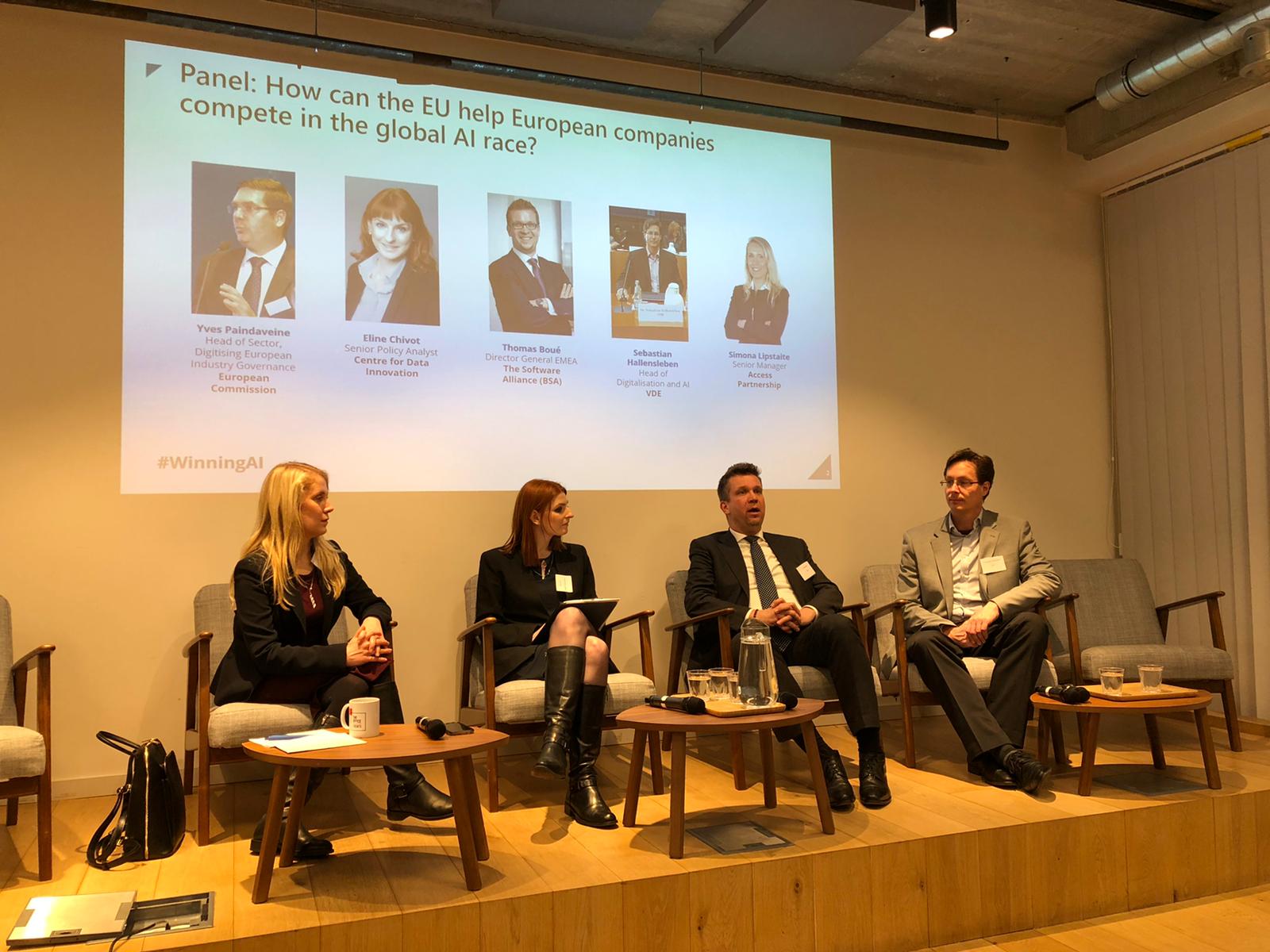On February 19, Access Partnership hosted a lively panel discussion on how the EU can help European companies compete in the global AI race at The Office in Brussels. This is the first in a series of events covering developments in the tech sector. Our panellists included Eline Chivot, Senior Policy Analyst and the Center for Data Innovation, Thomas Boué, Director at the BSA, and Sebastian Hallensblen of VDE.
The discussion covered a wide range of issues on a busy day in Brussels, coming just hours after the European Commission published its strategy on shaping Europe’s digital future, AI white paper and data strategy. We’ve picked out our top 3 takeaways from the panel on what the EU could and should be doing in the global AI race:
- Eline Chivot highlighted that the EU is already falling behind in the global AI race, as China and the US are pushing ahead with their own technology development. She called for a quick conclusion to negotiations on the EU budget so that the European Commission can rapidly start to allocate the funding promised for the tech sector to help it scale up its capabilities in areas including AI.
- Thomas Boué reminded attendees that data is the fuel of AI, and therefore data flows will be hugely important to the successful development of AI in Europe. He welcomed the Commission’s moves away from language supporting data localization and urged the EU to champion free flows of data on the global stage. When it comes to applying AI technologies, Thomas pointed out that rules for high-risk applications of AI need to take into account both the context and the purpose of the AI application.
- Sebastian Hallensblen of VDE pointed out that to succeed in AI, Europe does not necessarily need to produce its own tech giants to compete with companies like Amazon or Microsoft. Instead, he pointed to Europe’s thriving ecosystem of SMEs and suggested that the EU should aim at regulatory measures which make it easier for these companies to adopt AI and other emerging technologies. In particular, he called for common standards for data sharing and for measures to drive interoperability of data sets and data sharing systems between SMEs, which he believes will deliver huge benefits for Europe in sectors such as mobility, smart grids and industrial automation.
Stay tuned for updates on our next event in Brussels!


